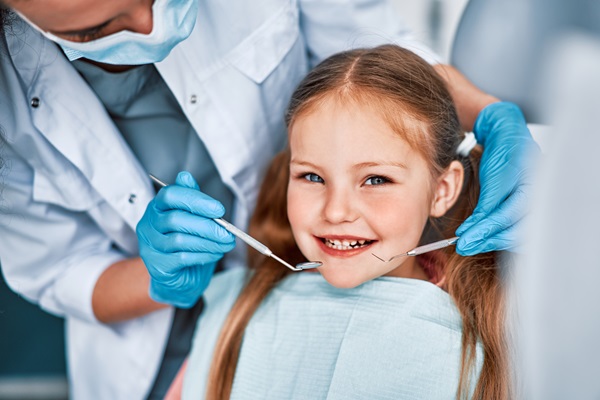When Is Dental Bonding for Kids Necessary?

Dental bonding for kids is a versatile, minimally invasive treatment option for a wide range of dental concerns. Dentists can typically restore a child's teeth to full form, function, and aesthetics by adding a tooth-colored resin substance to the tooth surface and curing it with a special light. It is important for parents to know the indications for dental bonding in children so that they may make educated choices regarding their care.
When is dental bonding for kids needed?
Accidents and sports-related injuries may all lead to chipped, cracked, or broken teeth in kids. Dental bonding is a popular option for fixing such damage because it can usually repair and restore the tooth's look, function, and strength. Additionally, the bonding material may be color-matched to the adjacent teeth for a completely natural-looking and undetectable restoration.
Other applications of dental bonding for kids include:
Gaps between teeth
Dental bonding for kids is an effective method for closing diastemas, which is the term for spaces between teeth. Children's self-esteem may suffer as a result of these gaps. With dental bonding, dentists may fill in these spaces by applying the resin to the teeth, creating a more even and aesthetically attractive smile.
Reshape irregular or misshapen teeth
Some children may be born with teeth that are uneven in size, shape, or contour; this may have serious consequences for their bite and dental health. The dentist can use dental bonding to alter the size and form of these teeth for cosmetic and functional improvements.
Treat tooth decay
Dental bonding may be used as a replacement for amalgam fillings in cases of moderate to severe tooth deterioration. Dentists may repair cavities and rebuild the tooth's structure using the tooth-colored resin substance. This procedure will also protect the tooth from future decay while making it look completely natural.
Cover discolored teeth
In cases of intrinsic tooth discoloration that is resistant to typical teeth whitening treatments, the pediatric dentist might recommend dental bonding to cover the affected teeth. The resin substance may be painted onto the discolored tooth, allowing it to match with the remaining teeth again. This procedure can help a child feel less self-conscious about their smile.
Protect exposed tooth roots
Gum recession can cause exposed tooth roots, which may result in decay and heightened tooth sensitivity. Covering and preserving these exposed roots with dental bonding for kids may lessen pain and prevent additional damage to the tooth.
Improve bite function
The dentist can use dental bonding to fix minor bite problems, including slightly misaligned teeth, in children. Dental bonding may correct a misaligned bite and restore proper bite function by altering the size and form of the impacted teeth.
While waiting for more permanent dental restorations, like dental crowns or orthodontic treatment, dental bonding may serve as a temporary solution for aesthetic and functional issues.
The bottom line
Children can benefit from dental bonding in a number of ways, including fixing broken or chipped teeth, reshaping irregular or misshapen teeth, covering discolored teeth, and improving bite function. Early detection and treatment of tooth problems with dental bonding may help parents ensure their kid has a lifetime of good oral health. If you are wondering whether dental bonding for kids is the best option for your child's specific dental requirements, contact our dental office to schedule a pediatric dentistry appointment.
Request an appointment here: https://parksidepediatricdentists.com or call Parkside Pediatric Dentists at (925) 504-4011 for an appointment in our Concord office.
Check out what others are saying about our dental services on Yelp: Dental Bonding in Concord, CA.
Related Posts
Pediatric dentistry is an area of dentistry that focuses on the oral health of children. Starting good dental hygiene habits early in life is important. As the Centers for Disease Control and Prevention states, more than 50% of children under the age of nine have had at least one cavity in their baby teeth, and…
Dental crowns are important in pediatric dentistry. Each primary tooth is a living guide for the development of permanent teeth. But baby teeth can also suffer from decay. So restoring these teeth is important for the general health of your child. If you want to know if pediatric dentistry uses dental crowns, here are the…
Getting good oral care early in life makes a big difference, but searching “pediatric dentist near me” might not be enough to clarify exactly why. Parents and kids alike can benefit from understanding what a dentist does to help children grow up with strong, healthy smiles, and it goes beyond cleaning the teeth. Here are…
An emergency pediatric dentist can resolve your child’s smile issues. Pain is the most significant sign your child needs emergency dental care. A quick response is important to give your child relief. Here are the quick treatments from your emergency pediatric dentist to restore your child’s smile.A chewing incident or a bad fall can cause…


